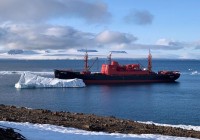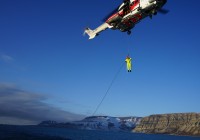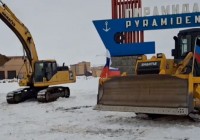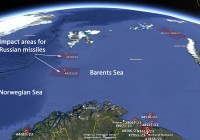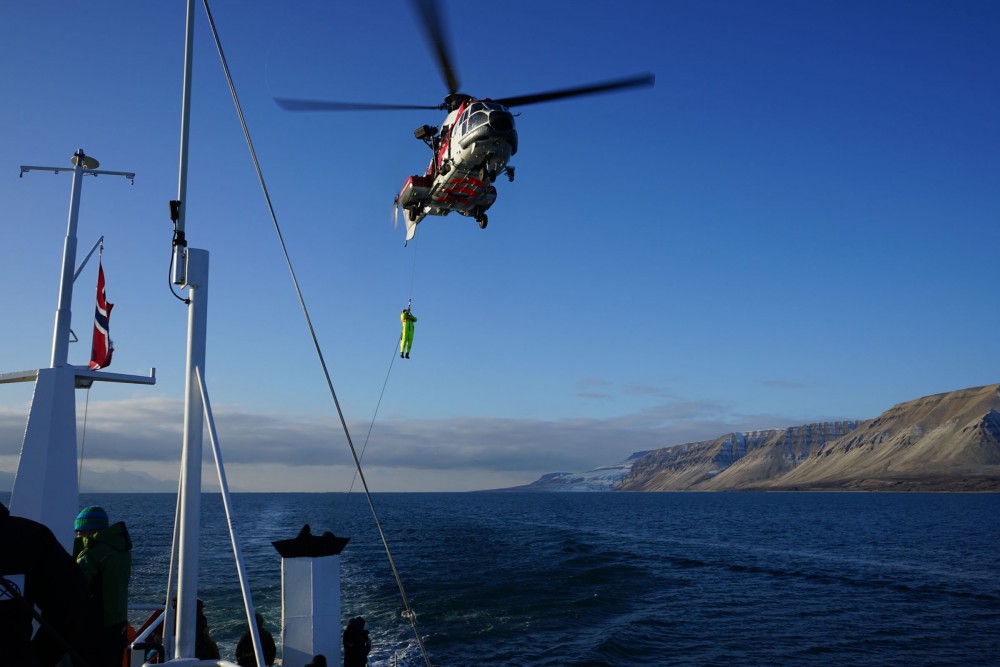
Russian missiles jeopardize Norwegian Arctic SAR response
ADVERTISEMENT
Bear Island is crucial for helicopter operations in the western Barents Sea as it holds a fuel deposit extending the range of achievable operations.
Located halfway between mainland Norway and Longyearbyen airport, Bear Island is also the point of no return for the smaller ambulance propellers flying northbound missions to Svalbard. It is here the pilot has to decide if the weather at Longyearbyen is good enough to land or if the flight must return to Tromsø or Hammerfest for fuel reasons.
The Barents Observer yesterday reported that Russia has announced closure of huge airspace and waters both south and north of Bear Island, forcing pilots and ship captains to make a long detour either east or west of the strategically located Arctic Island.
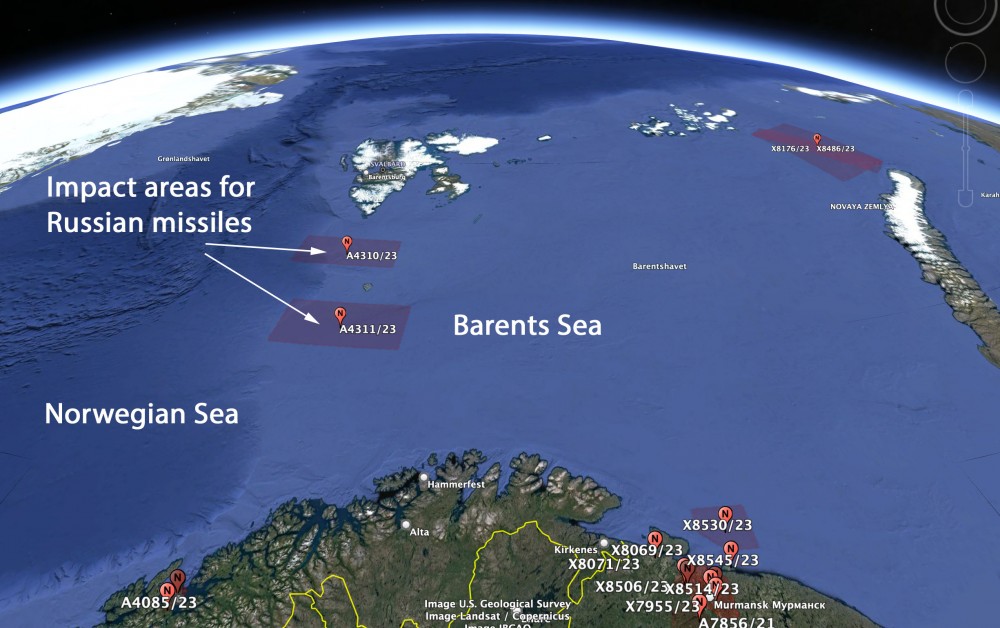
The Northern Fleet will sail out in the Barents Sea and has warned international aviation about missile impacts planned for the areas. Port authorities in Murmansk, responsible for Russia’s western Arctic regions, simultaneously warn about rocket shooting in the area.
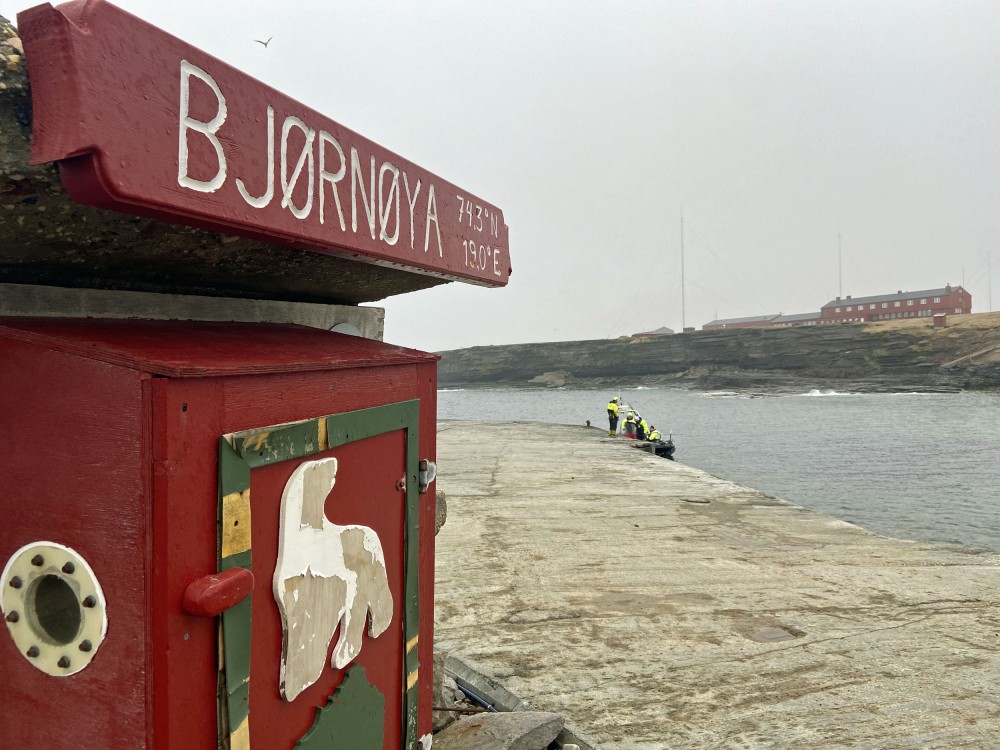
Governor concerned
The rescue service in Svalbard is part of the Norwegian rescue service.
ADVERTISEMENT
“Our captains of the two rescue helicopters routinely, and in advance of missions, review NOTAM messages relevant for areas of operation,” says Governor of Svalbard, Lars Fause, to the Barents Observer.
He says the Russian warning to air traffic in the given area and time window “must be taken with the utmost seriousness.”
“It clearly places strong limitations also on possible SAR missions,” Fause makes clear.
Eminent Svalbardposten was first to report on the Governor’s worries.
Lars Fause assures his office will clarify potential impacts during the day.
“One thing is commercial airliners scheduled- and charter flights to and from Svalbard. Of equal importance is if the missile will limit our possibilities to the requisition of ambulance planes to the island,” he says to the Barents Observer.
Russia’s warning concerns airspace up to 10,000 meters (32,800 ft). While commercial airliners normally fly higher, ambulance propellers and helicopters are far below such limit.
For commercial airline captains, an important consideration to take is Russian missiles’ unreliable flight patterns, likely redirecting them to avoid flying over areas although the missile limit is set to 10,000 meters. Following the Russian-caused downing of Malaysia Airlines flight MH17 over Ukraine’s airspace in 2014, insurance companies in dialogue with airlines agree to stay in safe distance.
Longer flying time
Spokesperson Anja Kristin Bakken with Norway’s Joint Rescue Coordination Centres confirms that the consequence for rescue operations using helicopter from the mainland or Svalbard is a detour to be taken to Bear Island if they need extra fuel.
“In the extreme, this can lead to longer time spent, which may have consequences for patients in need of evacuation from a vessel (MEDEVAC),” Bakken says to the Barents Observer.
Norwegian SAR helicopters are frequently picking up patients with injuries or illnesses that need to be treated as quickly as possible in hospital. The Norwegians assist all vessels, including Russia’s large fleet of trawlers fishing in Svalbard waters and the Barents Sea.
Anja Kristin Bakken underlines that although longer flying time, Bear Island is still within reach. “It just takes longer time,” she adds.
A helicopter can potentially refuel from a Norwegian Coast Guard vessel, but it is unclear whether any currently are sailing in the waters between Svalbard and Bear Island.
According to MarineTraffic.com, more than 10 expedition cruise ships are at Svalbard or en route to or from the archipelago this week.
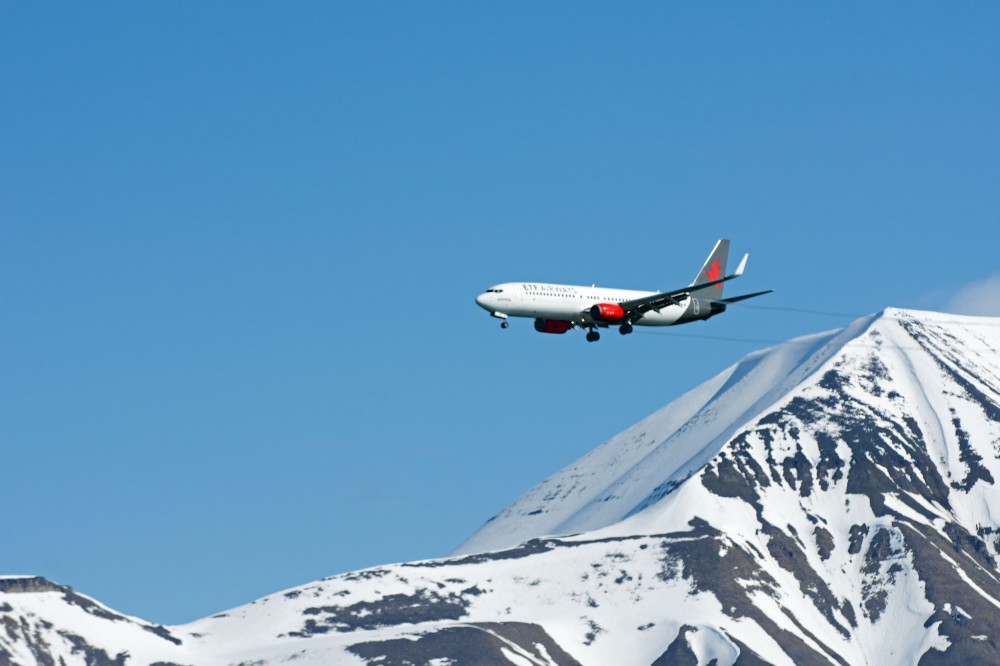
Safety is Russia’s responsibility
Norway’s military Joint Headquarters keep an eye on developments.
“The Defence together with our allies follows the situation near our areas closely, and we have a good situation awareness on activities going on provided by our daily operations,” says Corporal Jonny Karlsen, spokesperson with the Joint Headquarters.
“A Russian NOTAM warning in this area is not abnormal, nor does it mean that the area is completely closed off to traffic at all times,” Karlsen says.
The missile launching hours set by the Northern Fleet for the period August 11 to 15 are active every day from 7 am to 8 pm CET.
Corporal Karlsen says it is for Russia to take responsibility for awareness that no one inside the area is in danger.
“For the Norwegian Armed Forces, this will not have any practical significance, but civil aviation will probably still have to fly around such a danger area,” Karlsen adds.
The Ministry of Foreign Affairs in Oslo has not replied to Barents Observer’s questions about the case.
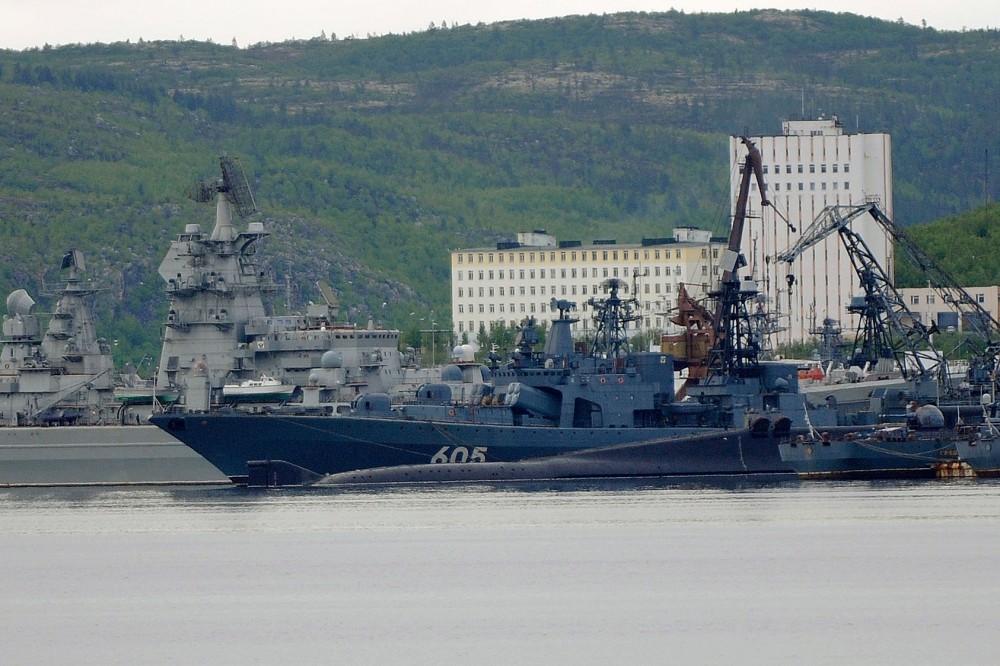
ADVERTISEMENT
The Barents Observer Newsletter
After confirming you're a real person, you can write your email below and we include you to the subscription list.




